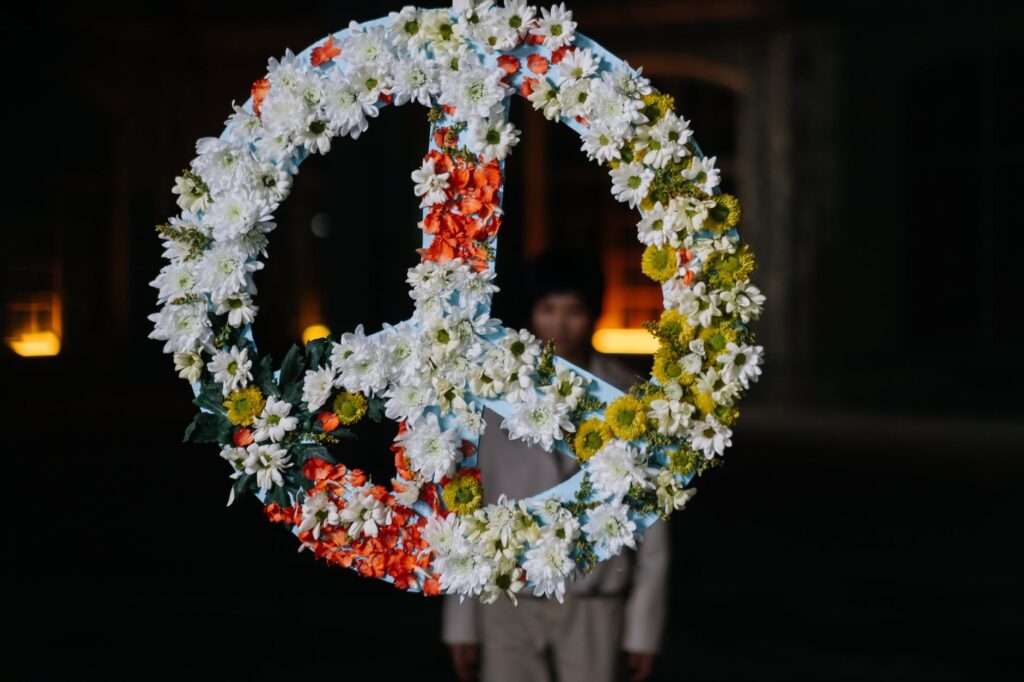
By Prof. Paul Robinson, Canadian Dimension, 1/25/22
In 1966, the Soviet writer Vladimir Soloukhin penned an article in the journal Molodaia Gvardiia (Young Guard) entitled “Letters from the Russian Museum” (the Russian Museum being an institution in Leningrad devoted to Russian art). In this, Soloukhin lamented the destruction of Russian churches under the Soviets and complained about the habit of renaming historical Russian towns and streets after communist heroes. “The best thing would be restore all [the old names] either gradually or immediately (immediately would be better in my opinion), without exception,” Soloukhin wrote, before going on to complain further about the general neglect of Russia’s national heritage.
Soloukhin’s article reflected the reality that under the façade of Soviet communism, Russian nationalism retained a powerful grip on much of the population, including its artistic community. This was shown by the hundreds of thousands of Soviet citizens who lined up to view exhibitions by the nationalist painter Ilya Glazunov some years later in 1978. The attention paid to Soviet dissidents and to the liberal intellectuals who swept to the fore under Gorbachev in the 1980s hid this nationalist substrata from many observers’ eyes. But it was always there and had strong popular backing.
This is still the case, but there’s a tendency in the West to look for signs of something different, in the hope of discovering that the Russian people are in reality pro-Western liberals, longing to liberate themselves from tyranny and move their country in our direction. Evidence for this is found in the few remaining Russian liberals, who tend to be concentrated in what are often called the ‘creative classes’—artists, journalists, IT technicians, and the like. In the aftermath of the invasion of Ukraine, the Western media has noted the opposition of many such Russians to the war and the fact that thousands of them have left the country. With this, hopes have risen that what nowadays are called ‘influencers’ (those who influence and form public opinion) will mobilize the Russian people against the ‘Putin regime,’ topple the state, and bring the war to an end.
Musicians have been particularly notable for their opposition to the war. For instance, Boris Grebenshchikov, founder and lead member of the legendary Soviet rock group Aquarium, has called the war in Ukraine “madness” and said that “those who unleashed it are a disgrace to Russia.” Many others, such as Soviet megastar Alla Pugacheva, Oxford-educated rapper Oxxxymiron, and popular singer-songwriter Monetochka (Elizaveta Gyrdymova) have followed suit. Just last week, Monetochka, who has fled Russia, caused something of a scandal after telling concert goers in Latvia: “Russia will be free! Glory to Ukraine! Long live Belarus!” One might be forgiven for thinking that the ‘creative classes’ are indeed united in their opposition to Putin and the war.
This isn’t actually the case. As in the past, a powerful patriotic/nationalist movement coexists alongside the rather weaker liberal, pro-Western one. And so it was last week that another former Aquarium member, violinist Andrei Reshetin, wrote an open letter to Grebenshchikov, denouncing his anti-war views and explaining why he (Reshetin), at the grand old age of 59, had joined the Russian army and gone to fight in Ukraine.
“Bob,” he wrote, addressing Grebenshchikov, “As you know, I am on the other side of the trenches and I’m a soldier. … I’m here because my conscience dictates it. And neither I, nor those who stand beside me, are fascists, like you say. We are on our own land. We are liberating it from those who seek to destroy everything Russian, our memory, our culture, our church, our thoughts. … Bob, you collected money for those who are shooting at us! … Stop! Let your legacy be your magical, perfect songs, not this shame.”
Aquarium aren’t just any old pop group. In the canon of Russian pop music, they’re the equivalent of something like the Rolling Stones. So although Reshetin was a somewhat lesser member of the group, his stance is symbolically significant (imagine a member of the Rolling Stones joining the British Army and going off to fight in Iraq). And he’s far from alone. While many Russian artists have spoken out against the war, for every one who has, another can be found who’s done the opposite. An example is popular singer Iuliia Chicherina, who has long expressed her support for the rebel Donetsk and Luhansk People’s Republics of eastern Ukraine. Following the invasion of Ukraine last year, she toured the front giving concerts to Russian troops and allowed herself to be photographed pulling down a Ukrainian flag in the town of Energodar (Enerhodar). “Everything is different. Even the air is different. We’re on our land. We’re on the frontline. Not one step back. No retreat. This is our land and we will stand,” goes the chorus of her song “Na peredovoi” (On the frontline).
It’s not just musicians and singers who tout the patriotic line. One of Russia’s foremost novelists, Zakhar Prilepin, several years ago formed a volunteer battalion to go fight on behalf the Donbas rebels. “When the documents are looked over, they’ll see the most people died where my battalion was stationed,” Prilepin later boasted.
While many academics, political commentators, and other intellectuals quietly oppose the Russian war effort in Ukraine, many others can be found lining up to back it. This even includes some previously in the liberal camp, such as political activist Aleksei Chadayev, who recently gave a lecture entitled “The drone as instrument of practical philosophy.” A one time aide to murdered liberal icon Boris Nemtsov, Chadayev has moved in a different direction to his former boss, arguing that throughout history war has been the main driver of technological progress and that Russia needs to master modern technology in order to win its war against the West. For this, he says, it needs more freedom. As one critic put it, Chadayev’s position comes down to “Without LGBT, you can’t build a decent UAV [unmanned aerial vehicle].” More freedom, so we can better smash the West!
Chadayev’s liberal militarism would have fitted in well around 1914, but nowadays is rather quixotic. There aren’t many like him. Still, even among those political commentators who at one point would have been considered moderate Westernizers, there is a strong sense that even if Russia shouldn’t have got itself into this position, now that it is, it has to win. Analysts like Dmitri Trenin and Fyodor Lukyanov, once the go-to men for Western journalists wanting moderate-minded quotes on Russian foreign policy, at one point argued that Russia’s place was in the West. Now they write articles for RT explaining why the war in Ukraine is existential in nature and must therefore be pursued until final victory. The intellectual atmosphere has shifted.
None of this means that Russia’s creative and intellectual classes are united behind their country’s war effort. Quite clearly, they’re not. But neither are they united against it. In fact, a considerable number of them are freely and spontaneously lending the war their support. And they seem to have a lot of public backing. One of the primary social media platforms in Russia is Telegram. Its most popular channels are dominated by pro-war, anti-Western military bloggers and war correspondents, such as Rybar, War Gonzo, and Alexander Kots. It was once believed that as Russians shifted from TV to social media, they’d come out from under the influence of the state and shift towards more liberal sources of information. Reality is proving very different—it is patriotic voices who seem to be winning the social media popularity game.
There’s a tendency to view the war in Ukraine as ‘Putin’s war.’ An article this week in the National Post noted that the West was sending tanks to “help Kyiv win its war against Vladimir Putin,” as if Putin was manning the entire 1,000 kilometer frontline all by his lonely self.
This is, of course, not the case. Putin has many allies, including among those to whom the Russian public listens. This may change if the situation at the front alters drastically. But for now, it is not Putin whom Ukraine is fighting but Russia, and that makes its task much more difficult than many might like to imagine.
Paul Robinson is a professor in the Graduate School of Public and International Affairs at the University of Ottawa and a Senior Fellow at the Institute for Peace and Diplomacy. He is the author of numerous works on Russian and Soviet history, including Russian Conservatism, published by Northern Illinois University Press in 2019.




